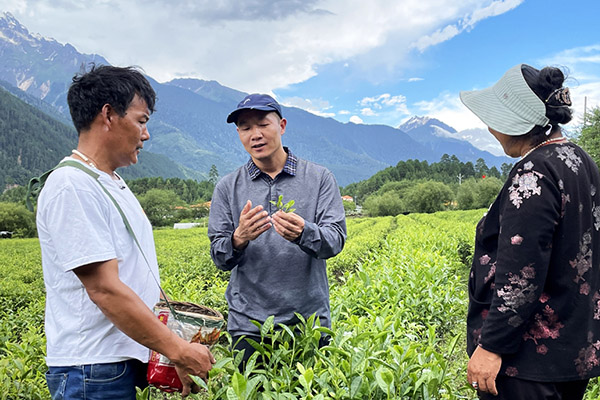Modern techniques brew new success for old tea farm in Tibet
Updated: 2021-08-11 By Zhao Shiyue (chinadaily.com.cn)
 Print
Print





Huang Hualin, a senior agronomist of the Tea Research Institute at Guangdong Academy of Agricultural Science, teaches farmers planting techniques at Yigong Tea Plantation in Nyingchi, China's Tibet autonomous region. [Photo by Zhang Yangfei/chinadaily.com.cn]
Instead of manual operation, tea processing has been further standardized and automated.
From the fund specially used for assisting Tibet, over 2 million yuan has been invested to upgrade production facilities, including two new assembly lines for pressing tea bricks, which largely increased the efficiency.
Other machines for different steps in tea processing -- such as rolling and drying -- were also set up.
"We plan to add a fully-automated production line for black tea and green tea in the future, with investment reaching 12 million yuan," Huang said.
Sales used to be the biggest problem for Yigong tea, since the consumption capability of local people was limited in this rural township, while markets in other cities had not been fully tapped.
By registering trademarks, Yigong tea built up its own brand and reputation. Thirteen online stores, as well as five offline shops in Tibet, were set up, generating over half of the total revenue in 2020.
Guangdong, hand in hand with Tibet in partner assistance, took action to bring the tea from the plateau to southeastern China.
Based on the national poverty alleviation platform and sales channels among the Guangdong-Hong Kong-Macao Greater Bay Area, Yigong tea has been sold to 12 cities across China.








